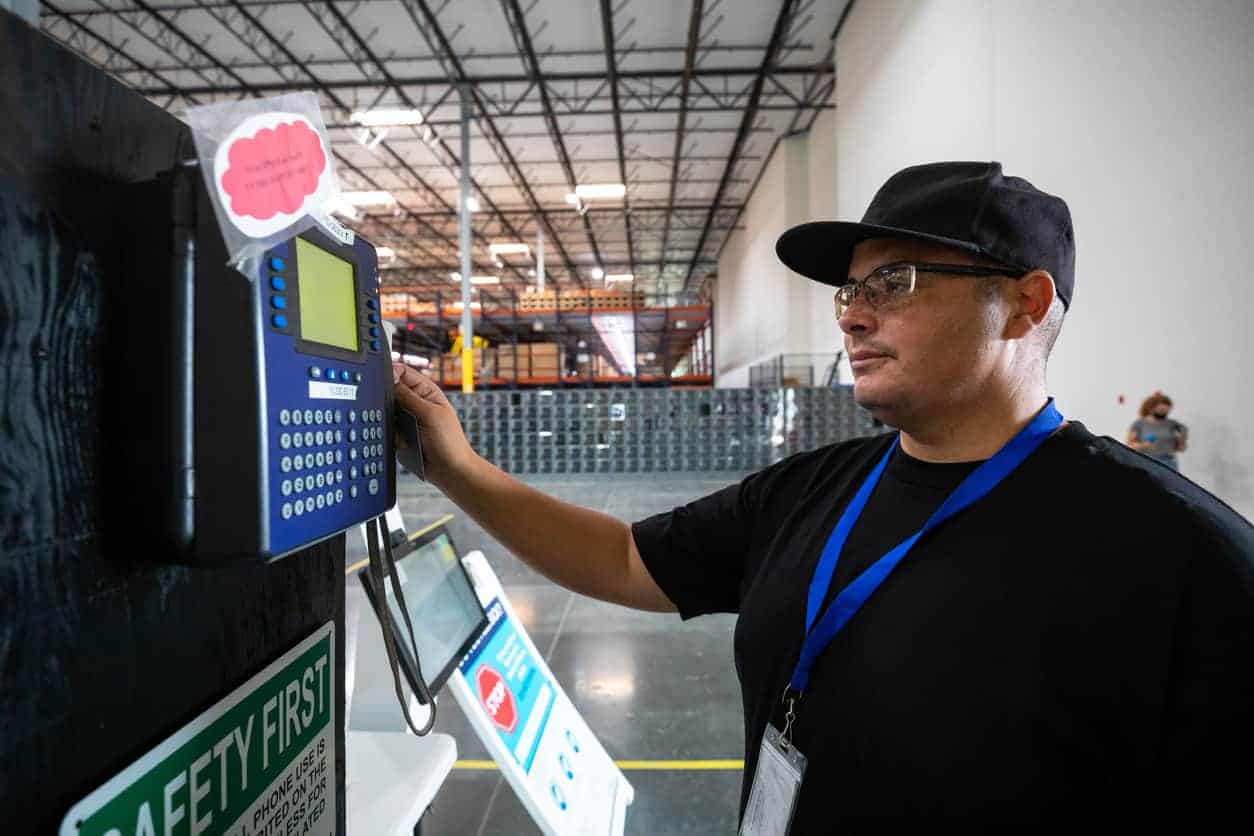Attorney advertisement by Edwin Aiwazian of Lawyers for Justice, P.C., headquartered at 450 N Brand Blvd, Glendale, CA 91203
Time clock rules for hourly employees are usually precise, but can be confusing. What are the federal and state laws regarding time clock rules? How do time clock rules relate to the Fair Labor Standards Act? What is the best way to ensure hourly employees are getting paid for all hours worked? We’re diving into it all.
California Employee Time Clock-in Laws
California has specific laws and regulations regarding employee time clock rules and recording employee hours. Employers in California are required to comply with these laws to ensure accurate tracking of hourly workers’ hours are in line with the Fair Labor Standards Act.
- Regular Payroll Periods: Employers in California must establish a regular pay period for paying hourly employees. Typical payroll periods are weekly, bi-weekly, semi-monthly, or monthly.
- Accurate Timekeeping: Employers are required to maintain accurate records of the hours worked by each hourly employee. This includes recording the time an employee clocks in and out each workday.
- Meal and Rest Breaks: Employees clock in and out for breaks. California labor laws state that specific meal and rest breaks must be taken based on how many hours employees work in each day. Employers must accurately track and record the timing and duration of meal breaks and rest breaks to ensure state labor laws are being followed.
- Overtime Pay: Employers must track and record all hours worked by employees, including overtime hours. Overtime pay is required for hours worked beyond 8 hours in a workday or 40 hours in a workweek, and double time for hours worked beyond 12 hours in a workday.
- Time Clock System: Employers may use time clock systems or other electronic methods to record employee hours accurately to track clock-in activity. The time tracking system must accurately record all hours worked and must be accessible to employees for review, in accordance with federal and state laws.
- Notification of Work Schedule: Employers are required to provide hourly workers with advance notice of their work schedules, including start and end times.
- Reporting Time Pay: If an employee reports to work but is not provided with the expected amount of work, the employee may be entitled to reporting time pay, which is a specified portion of their regular pay.
View this post on Instagram
- Penalties for Non-Compliance: Failure to comply with timekeeping laws can result in penalties, fines, and potential legal action against the employer.
Sections of the California Labor Code that outline common time clock rules are, but not limited to: 1174, 1174.5, 1175, 1178, and 204
California Time Change Law
As of the publication of this article, California follows the practice of daylight saving time (DST) and standard time, which recognizes the biannual time changes common in many parts of the world. These time changes involve moving clocks forward by one hour in the spring (“spring forward”) and moving them back by one hour in the fall (“fall back”). The main purpose is to make better use of daylight during certain parts of the year. However, certain federal law may change time change laws in the coming year(s).
Specifically, in California:
- Spring Forward: Typically, on the second Sunday in March, clocks are set forward by one hour at 2:00 AM local time, moving to 3:00 AM.
- Fall Back: Typically, on the first Sunday in November, clocks are set back by one hour at 2:00 AM local time, moving to 1:00 AM.
A change in time change could involve adopting either permanent standard time or permanent daylight saving time. This would not affect how employees clock in and out, but its advisable for hourly employees to ask their employer how a time change could affect their specific time clock rules at their job.
California Time Card Laws
Employers in California are required to comply with time clock laws to ensure accurate tracking and recording of employee work hours.
- Time Card Accuracy: Time clock rules for hourly employees are stringent for a reason; hourly employees want to ensure they are paid properly (especially when it comes to overtime pay for overtime hours worked) and time clock rules are necessary for employers to follow so they correctly follow labor laws. Time cards or time tracking methods must accurately reflect the total hours worked by an employee during each pay period. Employers should ensure that time cards are completed accurately and honestly.
- Record Retention: Employers must retain time records for a specific period as mandated by the the time clock law. The California Labor Code requires employers to keep payroll records for at least three years.
- Penalties for Non-Compliance: Failure to comply with time card and timekeeping laws can result in penalties, fines, and potential legal action against the employer.
If an hourly employee feels that a state or federal law has been breached because their hours worked were not properly recorded as outlined by the above time clock rules, they may want to consult with a time clock attorney. The lawyers at Lawyers for Justice, P.C. help California workers every day with time clock issues to get them the compensation they deserve. Call (818) JUSTICE for more information.
Attorney advertisement by Edwin Aiwazian of Lawyers for Justice, P.C., headquartered at 450 N Brand Blvd, Glendale, CA 91203
Think you deserve justice?
-
Get a Free Case Evaluation
-
Retain Service with No Upfront Cost
-
Get the Justice You Deserve
-
No Win, No Pay









